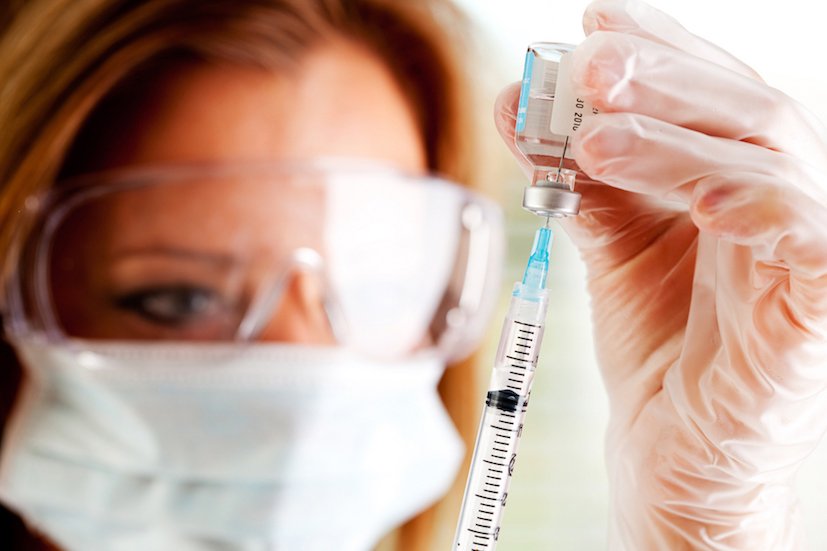Can India re-visit UK’s stand on gap between two COVID-19 jabs?
June 12, 2021 | Saturday | News | By Narayan Kulkarni
Dr V K Paul, Member (Health), NITI Aayog, has highlighted the need for due scientific process in arriving at such decisions
Image credit- shutterstock.com
The UK government has reduced the gap between two doses of COVID-19 vaccines from 12 weeks to 8 weeks for the people who are in the top 9 priority groups who are yet to receive both doses. This latest development was announced on June 11, 2021 as a recent study by Public Health England (PHE) showed that two doses of the COVID-19 vaccines are highly effective against the Delta (B.1.617.2) variant.
It may be noted that the Delta variant, which was first detected in India, is spreading rapidly in the United Kingdom and has quickly become the dominant strain there, and causing surges of COVID-19 in some parts of England.
While India which is just taking control of the second wave of COVID-19 and preparing for the third wave, it is looking at what the UK government has taken to control spreading of the B.1.617.2 variant.
On June 12, 2021, India has reported 84,332 Daily New Cases in the last 24 hours. The country has recorded less than 1 lakh Daily New Cases for 5 continuous days now. Out of the people infected since the beginning of the pandemic, 2,79,11,384 people have already recovered from COVID-19 & 1,21,311 patients have recovered in the last 24 hours. This constitutes an overall recovery rate of 95.07 per cent, which is showing a sustained increasing trend.
However briefing media on June 11, Dr V K Paul, Member (Health), NITI Aayog has assured that there is no need for panic on the need for an immediate change in the dosage interval.
Dr Paul has highlighted the need for due scientific process in arriving at such decisions. He has appealed to the public to respect the decision taken by National Technical Advisory Group on Immunisation (NTAGI), where there are quite a few people who have been a part of World Health Organisation (WHO) panels and committees and are globally renowned and recognized for their eminence.
“Let the decision regarding dose interval be examined by NTAGI, as per due process. The United Kingdom must have adopted due process and examined data scientifically, to revise their previous decision regarding the gap. The UK had earlier kept the gap at 12 weeks, but as per data available to us, we did not consider it safe at that point. So, let us entrust this to our scientific fora, they must be addressing it already. They will review it based on the pandemic situation in our country, depending on the extent of prevalence of the delta variant in our country and then take a comprehensive view. Whichever decision is taken by our scientific community, we will honour it.”
It may be noted that India had extended the gap between two doses of COVISHIELD vaccine from 6-8 weeks to 12-16 weeks based on recommendation of COVID Working Group on May 12, 2021.
The COVID Working Group chaired by Dr N K Arora has recommended extension of the gap between the first and second doses of COVISHIELD vaccine to 12-16 weeks. Based on the available real-life evidences, particularly from UK, the COVID-19 Working Group agreed for increasing the dosing interval to 12-16 weeks between two doses of COVISHIELD vaccine. No change in interval of COVAXIN vaccine doses was recommended.
The COVID Working Group comprises of the following members: Dr N K Arora- Director, INCLEN Trust; Dr Rakesh Agarwal, Director and dean, JIPMER, Puducherry; Dr Gagandeep Kang, professor, Christian Medical College, Vellore; Dr J P Mulliyal, Retd professor, Christian Medical College, Vellore; Dr Naveen Khanna, Group Leader, International Centre For Genetic Engineering And Biotechnology (ICGEB), JNU, New Delhi; Dr Amulya Panda, Director, National Institute of Immunology, New Delhi; Dr V G Somani, Drugs Controller General of India (DCGI), Government of India; The recommendation of the COVID Working Group was accepted by the National Expert Group on Vaccine Administration for Covid-19 (NEGVAC), headed by Dr Paul, Member (Health) Niti Aayog in its meeting on May 12, 2021.
On June 11, Dr Paul has pointed out that “We must remember that when we increased the gap, we had to consider the risk posed by the virus to those who have received only one dose. But the counterpoint was that more people will then be able to get the first dose, thereby giving a reasonable degree of immunity to more people.”
Dr Paul further added that “We need to balance these concerns. So, please remember, that we need to necessarily have this debate and discourse in the public domain; however, the decision has to be taken by appropriate fora comprising eminent people who are knowledgeable about this.”
Let the COVID Working Group take an appropriate and quick stand regarding the gap between two doses so that it will be a win-win situation for all.
Narayan Kulkarni
(narayan.kulkarni@mmactiv.com)










